Beth Kephart's Blog, page 187
May 6, 2012
on the street where we lived
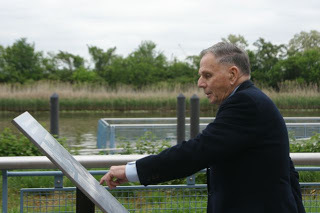
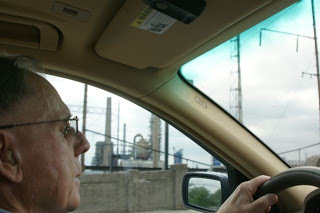
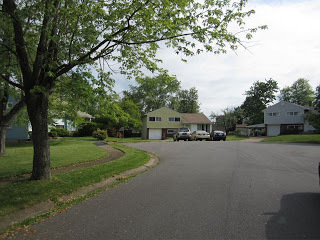

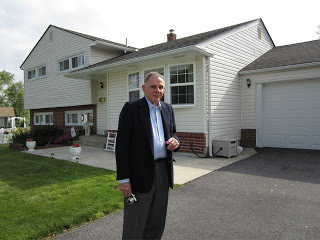
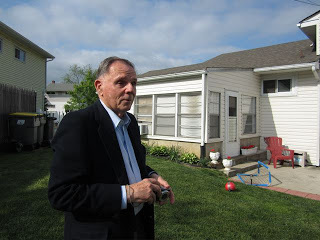
This afternoon, we took the journey back in time—to a riverfront lunch and then to our first home, 19 Burns Road, Ashburne Hills. My father bought this house in 1957 for $14,000 with help from the GI bill; he put ten percent down. My brother and I were born here, played in a sandbox out back, waited for my father to come home from his crazy hours at the Marcus Hook plant where, as a chemical engineer, he helped thwart fires, build a catalytic converter, and manage the flares on the stacks that are depicted here, behind him, as he drove.
Some years have gone by since then, maybe a few. But in so many ways, he hasn't changed a bit.
The owners were in. They let us roam around.




Published on May 06, 2012 15:05
Ordinary Geniuses/Gino Segre: The Pennsylvania Gazette Review

I always feel privileged when asked to write for my Alma mater (and my employer), the University of Pennsylvania. This month I reviewed Gino Segre's new biography of George Gamow and Max Delbruck, Ordinary Geniuses, for that truly gorgeous and substantive (think of it as The New Yorker for the academic set) The Pennsylvania Gazette. The review starts like this, below. You can find the rest here.
George Gamow and Max Delbrück were scientific wall-jumpers—intellectual
border-crossers who in many ways defined the fields of cosmology and
genomics.
George, known as Geo, was Russian, a physicist by training, who would go
on to be known as the father of Big Bang cosmology. Max, also a trained
physicist, was a German whose curiosity would take him many places
before he settled in with bacteriophages and the study of genetic
replication. Geo was a renowned jokester. Max was considered Zen. Wonder
framed their pursuits, and friendship bound them. In choosing to pair
the two in Ordinary Geniuses, a dual biography, Gino Segré,
emeritus professor of physics and astronomy at Penn, has crafted a
charming and wide-ranging text that has as much to teach about
20th-century science as it does about personal sacrifice and risks.




Published on May 06, 2012 06:21
May 5, 2012
My Father's Rising
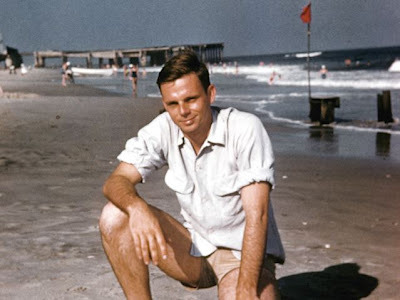
Tomorrow, my father, husband, and I will drive an hour or so from here to return to the homes of my childhood. The first house, in Ashbourne Hills, which I remember for perhaps two or three scenes—a bike, a sandbox, a cul-de-sac. The second house, in Woodbine, that took me through my twelfth year. It's a belated birthday outing. A going home.
In thinking about that today, I recalled this short essay, which first appeared in Big Shoes, an anthology collected by that Emmy-winning weatherman, Al Roker, on dads and fatherhood. So here's to my father, then, and here's to childhood.
There are photographs. My father, slim and auburn-haired, just
sitting. My father (somewhat
sheepish, almost proud) gone fishing.
My father holding my only child’s hand as they study some unknown miracle
on the driveway. My father asleep
in that house near the beach, after a morning of sun and counting
dolphins. My father in photographs
is being good at doing little. But
in life my father is something else again: He is good at doing much and seeking no one’s praises for
it.
We
have the same body clock, my father and I. The same urge to rise in the hour before dawn, when the mind
can hold a steady thought and nothing seems impossible. When I was a child, I would wake to the
sound of my father’s rising, wait for the smell of his toasted muffins and
melted butter, listen for the snap of his briefcase (such a sound that was,
such a pronouncement), then watch through the window as he drove away, his
car’s headlights singeing the darkness.
He wore good
suits, well-ironed shirts, the ties my mother bought for him. He was the only one out on the streets at
that hour, save perhaps for furry things.
He didn’t come back home until the world went dark again — the knot of
his tie still up near his throat; the cuffs of his sleeves still buttoned, in
place; his briefcase heavy with whatever he’d brought home to do that night, while
we were sleeping. If our mother
was always his best friend and confidante, his truest trusted advisor, we three
kids knew little of the problems that our father encountered or solved, little
of the play and pull of politics in his glassy office building. My father was an engineer who became a
manager who eventually sat behind a desk on a corporation’s upper floors. An oil man before he went into
steel. An innovator of one sort or
another. But what he did all day I
don’t think we kids ever really knew, for when he was home, he was our father,
and he did not act like someone else.
Hey Dad, how was work?
It was fine. How was school?
I still don’t get the math. It’s hard.
Bring your book, and we will do it.
I don’t remember
my father boasting. I don’t
remember any talk of sacrifice. I
do remember that as I got older, I’d join him in the dark— come downstairs to
the breakfast table, where it was just the two of us. Sometimes he would go over the tricks of algebra, trusting
me to hold the rules of variables in my head. Sometimes he would ask me about my friends. Always he would proclaim that he made
the best English muffins in the east, the only arrogance (he liked them
charred, he liked the smoke above the toaster black) that he allowed
himself. And then he would pack
his briefcase and say goodbye and burn his headlights into the dissipating
dark, leaving me awake to the dawn, my own thoughts in my head.
I was the middle
child, and the first daughter. I
was the one who would never lose my father’s habit of rising early, in the
dark. I am the age now that he was
then, when we shared the breakfast table, and what I think about now, when I
think about my Dad, is how hard he surely worked and how little he’d speak of
it. It was just muffins and
butter, in that hour before dawn.
It was just father and daughter, and the day, anticipated.
(originally appeared in Big Shoes: In Celebration of Dads and Fatherhood, Al Roker and Friends)




Published on May 05, 2012 04:36
May 4, 2012
a single orange eye
Published on May 04, 2012 12:58
Chanticleer, Berlin, and a Special Friend

The fog is lifting here, the rain subsiding, and in two hours I'll meet my friend Annika at Chanticleer, where we will walk a path familiar to us both. We have both taken solace and shelter in this pleasure garden. We are both lovers of dance. And I have a written a book about Annika's home, Germany, which she has generously agreed to read.
And so Berlin, gardens, dance, stories. All of it here, in two hours.
From the novel (first draft) that I will be sharing:
Some
time, late, I wake to the sound of Omi snoring behind the door to her
room. She takes a long, rasping
time filling her lungs, then snorts the air out quick, and then it’s silence,
then rumbling again. Who knows how
she sleeps. People who hide don’t want to be found, she said, and now when I
close my eyes it’s her world, the stories she’s told me. The Red Army has made its way in, is
crossing the river. There are
German traitors—deserters—strung up by their flimsy necks from the lampposts at
train stations, and women and children are almost all that is left of
Berlin. There will be no virgins
standing after everything is done, and the newspapers have stopped, and the
phones ring empty, and the trains run two-to-three to a car while everybody
else walks, because no one else, including Omi, can afford the fare; they have
all been issued the wrong ration cards.
She will wait in many lines.
She will fight for rancid butter.
She will loot the abandoned bakery for whatever there still is, and at
night she will warm her feet by that brick, her legs cold and white beside her
mother’s. When the bombs go off
she will scramble, her heart high and sick in her throat. She will run, buckets of stolen things
in either hand, the buckets clanging.
She will run beneath the streets into the shelter.




Published on May 04, 2012 05:35
May 3, 2012
Dine In/Help Out
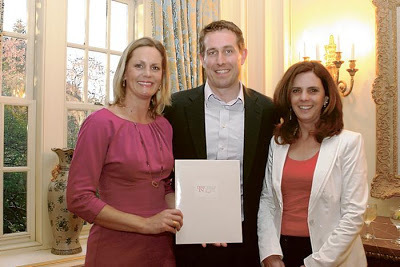
Last year, I had the privilege of hosting two of my long-time clients—Mike Cola, until recently the president of Shire Pharmaceuticals, and Jerry Sweeney, the CEO of Brandywine Realty Trust, along with the beautiful women in their lives, for an initiative called Dine In/Help Out. Dine In/Help Out is designed to promote healthy eating through its Farm to Families program. I chronicled my efforts here, on the blog. Confessed to being a less-than-perfect cook who is blessed with near-perfect friends.
This summer St. Christopher's Foundation for Children is sponsoring its second DIHO event, and because I adore Jan Shaeffer, the Foundation's executive director, and because the St. Christopher's Foundation crowd is my all-time most favorite philanthropic Philly crowd, I was there, at the launch party. Read about the whole story here, in this Joan A. Bang Mainline Media News. Or go to the Dine In/Help Out site and see what you can do to have fun and help this worthy cause.
Thank you, Kimberly Hallman of Devine + Powers, for sending this to me just now.




Published on May 03, 2012 11:20
May 2, 2012
Hoping to find you at the BEA

My friends: I'll be at the BEA on Tuesday, June 5, 2012, working for Publishing Perspectives , the fabulous book news pub for which I have written about Pamela Paul (New York Times Book Review children's book editor), Jennifer Brown (Shelf Awareness children's book editor), Lauren Wein (Harcourt Houghton Mifflin editor), Alane Mason (WW Norton editor, not to mention my first editor), and others. I'll be getting the inside scoop on some important stories. But I'll also be looking for you.
If you'll be there, let me know?




Published on May 02, 2012 17:46
Hit Lit: One Attempt to Define Bestsellerdom
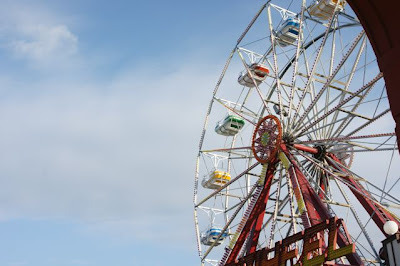
Laura Miller woke me up early this morning with her "Recipe for a bestselling book," over on Salon.com. "One writer says he's figured out 12 basic ingredients for a blockbusting title," reads the article's subtitle. "Can the puzzle really be that easy?"
The book is by James Hall. The title is Hit Lit: Cracking the Code of the 20h Century's Biggest Bestsellers. The titillation potential is, well, Come on. The bottom line (for Hall): Megabestsellers are all "permutations of one book written again and again for each new generation of readers." The bottom line (for Miller):
True, I, too, would never call (Dan) Brown a “good writer” — yet many very
successful novelists are not: Stieg Larsson, for example. A book doesn’t
have to be especially well-written, plausible or original to be a
bestseller (although it can be). The characters don’t have to be
particularly interesting, as John Grisham proves again and again. In
fact, if there is one trait that all of the bestsellers Hall considers
absolutely share, it’s that a lot of people like them.
Miller isn't being tongue-in-cheek, or coy. She's just being honest. She's reflecting on the questions all of us ask—How did that book end up on the bestseller list? Why in the world did book clubs go crazy over that clunker? Doesn't anybody care about the integrity of a sentence?—and she's giving us the answer:
Publishers can provide a book with the ideal conditions in which to catch
on, but only the genuine enthusiasm of the reading public will make it
an ongoing hit. Word of mouth — one reader raving to another about how
much he or she enjoyed it — is the single determining factor. And you
can’t buy that.
No. It is true. You cannot.




Published on May 02, 2012 03:13
May 1, 2012
By the end of the day ...
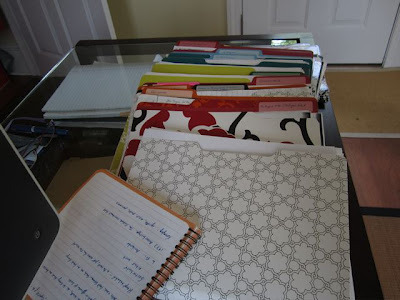
things were looking less messy around here in HANDLING THE TRUTH land. Seriously, though. How much do we love fancy file folders? Katrina Kenison sent me my first set of grown-up file folders years ago. Ever since then, nothing less will do.
But enough, already, on organizing.
Tomorrow I must write.
Tomorrow. Tomorrow.
I'm starting to sound like Annie.




Published on May 01, 2012 17:00
HANDLING THE TRUTH: writing the next two-thirds
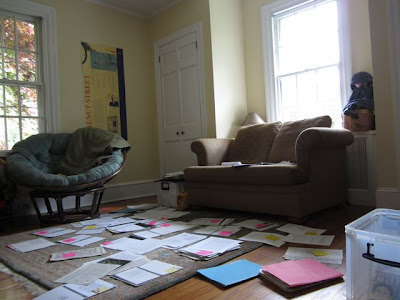
And so, having cleared my mind with three days of reading, with long walks, with dance, I turn to writing HANDLING THE TRUTH for Lauren Marino at Gotham. Every pink and yellow square flags a chapter that waits (and wants).
I imagine myself just slightly underground, inside a grotto of time.




Published on May 01, 2012 08:12






